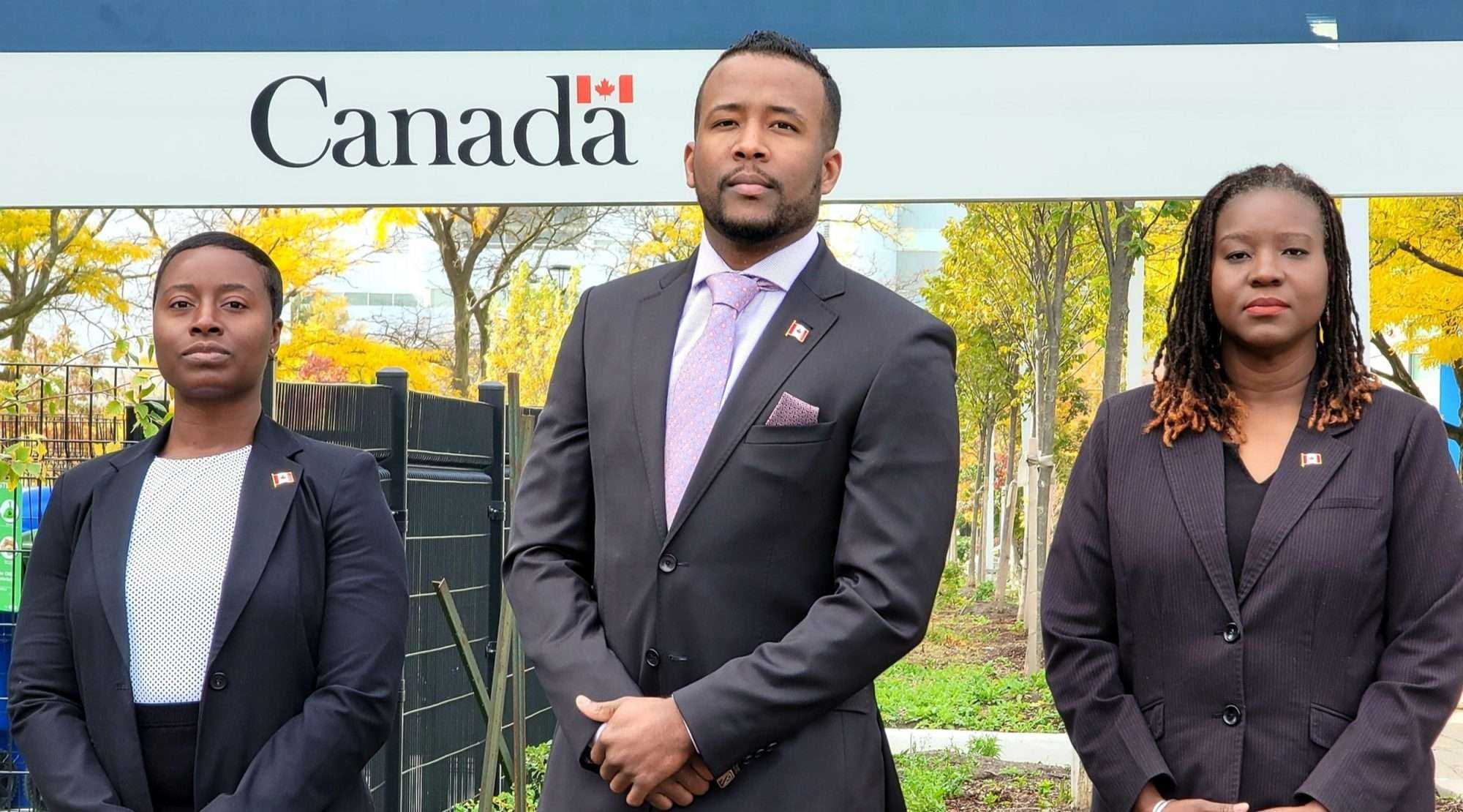on
BY SIMONE J. SMITH
“We should go back to the good old days when we had slaves!”
“He said what?” I was speaking with Nicholas Marcus Thompson Black Class Action Secretariat about a recent announced submission to the UN Commission for Human Rights’ Special Rapporteur on contemporary forms of racism, racial discrimination, xenophobia and related intolerance.
That comment was made by an employer (who and what company was not disclosed), and to be honest, even though my response sounded surprised, I really wasn’t. It has become exhausting to repeatedly explain that racism exists in Canada. For Canadians who have likely never experienced systemic racism, it is easy to deny its existence.
The issue is that our government officials continue to ignore the cries of the people, the very same people who have put them in office. A few years ago, Ontario Premier Doug Ford stated that Canada doesn’t have the same systemic deep roots of racism that the United States does. He retracted that statement, but his original spoken thoughts are telling. Canada’s racist past continues to be felt by people of colour, particularly African-Canadians, and Indigenous communities.
This is not something that White privileged individuals give much thought to, because let’s be honest, it doesn’t directly impact their lives. We did however see the experience of division during the pandemic, when it was no longer about colour, but more so about whether you were masked, or unmasked, vaccinated, or unvaccinated, but I digress.
Let’s go back to the head of the snake, and speak about our leader, Prime Minister Justin Trudeau. Since he has taken office, Prime Minister Trudeau has been cashing cheques that he doesn’t have the money to pay. In other words, making promises that he cannot, and doesn’t seem to want to keep.
When he got elected, Trudeau told us three of his priorities were delivering action on climate change, reconciliation with Canada’s Indigenous people and running an open government. To this day, he has not delivered on his promises and Canadians are not getting timely resolution of their complaints for access to information requests, which go against his promise to run an open government. Other than wearing an orange shirt, and providing a holiday, Canada’s Indigenous people are still dealing with systemic racism, and there are many of them who are unable to access clean drinking water. Can you imagine; a country as large as Canada with access to large quantities of fresh water?
In August 2020, Prime Minister Justin Trudeau promised action to address systemic racism in Canada policing and other institutions. This was after more than 100 Liberal MP’s and half of Trudeau’s cabinet signed a declaration from the Black caucus that called for a wide range of reforms.
In 2019, the Liberal government unveiled a $45-million strategy to tackle racism in the public service and federal policies, and in mid-June 2021, Trudeau pledged further action on systemic racism would come “Very soon.”
Well enough is enough! There are a group of individuals who have decided that they are going to take action. In December 2020, a class action was filed against the Canadian government on behalf of more than 45,000 Black federal public service employees who have been subjected to systemic racism, discrimination, and employee exclusion
This complaint to the UN outlined the Canadian government’s failure to protect Black Canadians, and on September 28th, 2022, representatives of the Black Class Action Secretariat (BCAS), together with partner Amnesty International Canada (Amnesty), joined forces to shed light on the historic and on-going human rights violations faced by Black employees in Canada’s federal public service. These workers have endured anti-Black hate and anti-Black racism, both covertly and overtly, over the course of decades in the service of their country. This is contrary to the right to non-discrimination found within several international conventions ratified by the Government of Canada.
“On behalf of all Black workers, we are elevating Canada’s past and on-going failures to the United Nations,” said Nicholas Marcus Thompson. “Black Canadians are suffering, and we will be relentless in our pursuit of justice on their behalf. Each of us believes the government of Canada must be held accountable. What they do is throw money at us, and it doesn’t reach our community. Other community newspapers have not covered this matter; and I want to thank the Toronto Caribbean Newspaper for taking the lead. This story impacts 1000’s of Caribbean’s, and there is a significant connection to the Caribbean.
A lot of Caribbean people migrated to this country. They have been welcomed to this country and get caught up in the dream; they think that if they get their foot in, they can work their way up. Many of them today have retired in the exact same position that they started in. Many cannot afford to retire; it is so expensive. Pensions are not enough to retire.
They have gone through so much trauma, and dealing with it on a day to day basis, living in low income housing, not being able to get by. We are Caribbean Canadian Nationals fighting the government, against systemic racism. We have to dismantle this system from the top. It is Caribbean people who are leading the charge, and creating this massive dialogue on the economic impacts of systemic racism.
It is about setting the precedent and empowering members of the community to step forward, and stand up. How do we sustain changes? I thought about how we are treated in the workplace; employers have their knees on our neck.
It is dehumanizing. It takes away a person’s values. They speak about the work giving you experience, but what good is this experience if it doesn’t move you up.
Black people have been in Canada for 400 years; majority of them were brought here as slaves. Slavery was abolished, and then they couldn’t vote because they didn’t have property. Then the government of Canada said that Black people were undesirable. During the war, they said it was a White man’s war, and they created a segregated battalion. They had to cut down trees, defuse landmines, and dig the trenches. That was the early public service. 107 years later, family members are still digging the trenches. The government of Canada knows it has treated Black people terribly for years.
Black people have to continue to fight for representation, to defend our need for mental health support. The government will say they are doing these things, but nothing is happening.”
Together the BCAS and Amnesty are calling on the Special Rapporteur to investigate Canada’s violation of its obligation to abide by these international treaties. This includes calling on the federal government to:
- Meet its international obligations
- Establish a coherent plan to address hiring and promotional gaps for Black Canadian workers
- Develop a plan to increase opportunities for professional development
- Initiate a study and report on systemic discrimination in labour and employment to help identify why this persistent culture exists
With almost 1,500 plaintiffs from across Canada, the Black Class Action has garnered the support of major international organizations like Amnesty International and Canadian associations, including: the Public Service Alliance of Canada and the Professional Institute of the Public Service of Canada.
“Black women make up 70% of Federal employees who have come forward with allegations of discrimination in the public service. These experiences are not only an affront to the inherent dignity of the people who uphold the Government’s functions daily,” said Ketty Nivyabandi, Secretary General of Amnesty International Canada.
“They are contrary to Canada’s obligation under international law to eliminate discrimination in employment. We unequivocally support Black Class Action’s call for justice and urge the government not to wait for the UN’s response to start enacting much-needed change. Federal workers, and millions of Canadians who rely on their efforts, cannot wait.”
As a worker, if you have faced systemic racism in your workplace you can join the suit by visiting www.blackclassaction.ca.
Stay in the loop with exclusive news, stories, and insights—delivered straight to your inbox. No fluff, just real content that matters. Sign up today!
We, as humans are guaranteed certain things in life: stressors, taxes, bills and death are the first thoughts that pop to mind. It is not uncommon that many people find a hard time dealing with these daily life stressors, and at times will find themselves losing control over their lives. Simone Jennifer Smith’s great passion is using the gifts that have been given to her, to help educate her clients on how to live meaningful lives. The Hear to Help Team consists of powerfully motivated individuals, who like Simone, see that there is a need in this world; a need for real connection. As the founder and Director of Hear 2 Help, Simone leads a team that goes out into the community day to day, servicing families with their educational, legal and mental health needs.Her dedication shows in her Toronto Caribbean newspaper articles, and in her role as a host on the TCN TV Network.













